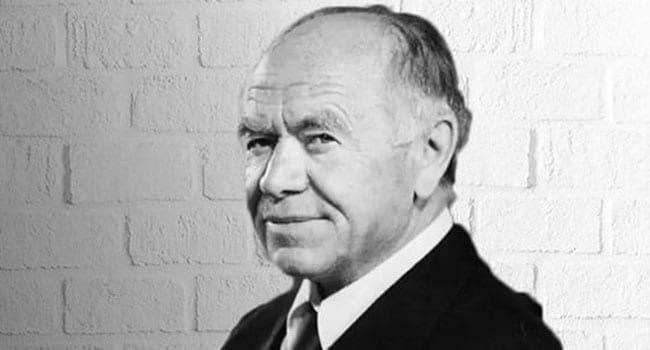 Max Aitken – widely known as Lord Beaverbrook – is the subject of a new biography by English author Charles Williams. Max Beaverbrook is a readable book on an interesting and controversial character, one whose balance of attributes is ambivalently encapsulated in the subtitle Not Quite a Gentleman.
Max Aitken – widely known as Lord Beaverbrook – is the subject of a new biography by English author Charles Williams. Max Beaverbrook is a readable book on an interesting and controversial character, one whose balance of attributes is ambivalently encapsulated in the subtitle Not Quite a Gentleman.
Aitken was born in Maple, Ont., in 1879. His father was a Presbyterian minister who’d emigrated from Scotland in 1864 and his mother came from a mixture of Ulster Irish and Scottish stock. Before little Max’s first birthday, the family – which by then included six children – relocated to Newcastle, N.B.
By all accounts, it wasn’t a joyful household. Both parents were disciplinarians. You might even call them dour.
Apart from writing lengthy sermons on the virtues of Calvinism, the father’s main passion was “a large library of books which were kept in a special room to which he would retire to smoke his pipe and ponder no doubt on the sins of the world.”
However, none of this asceticism rubbed off on his son. In addition to demonstrating a superb talent for the cut-and-thrust of business, Max Aitken became a man who relished the good things in life, the luxuries that financial success could buy and the sexual company of an array of women.
Aitken made his first million by the time he was 30. Under the tutelage of Nova Scotia businessman John F. Stairs, he quickly acquired a knack for finance, ranging from floating new bond issues to buying, selling and merging companies.
Relentless and focused, he liked to win and wasn’t squeamish about cutting corners. To quote Canadian academic Gregory Marchildon, “The ends always seemed to justify the means in his mind, and he had few qualms about misleading both friends and foes if it got him what he wanted.”
Although he never cut his ties to New Brunswick, Aitken shifted his main base of operations to Britain in 1910. London was the imperial centre and the hub of global finance, and he wanted to be where the action was.
Politics, too, became a passion. He won a Westminster parliamentary seat in December 1910, played a number of roles during the First World War, including a stint as minister of Information, and was elevated to the peerage in 1917.
And he developed what was to be a lifelong relationship with Winston Churchill. Thanks to a kindness Aitken extended during Churchill’s post-Gallipoli nadir in 1915, the men formed a connection that survived subsequent periods of disagreement.
Aitken spent the inter-war years becoming a true press baron. He owned three newspapers – the Daily Express, the Sunday Express and the Evening Standard – and demonstrated a real flair for building the business. He invested in technology, hired writing and editing talent, and drove circulation such that the Daily Express became Britain’s most successful paper.
And, of course, he used his papers to push pet causes.
There was the Empire Crusade, which sought to promote the idea of an imperial customs and fiscal union embracing Britain and the Dominions. The slogan “Empire free trade” seemed promising but came to nothing, foundering on practical considerations like the prospect of tariff-induced higher prices on food from outside the empire.
Aitken also campaigned against British involvement in the deteriorating political situation in Europe. A September 1938 Daily Express article under his byline was headed “There will be no war.” It wasn’t until May 1940 that he gave up all hope of peace with Germany.
This attitude notwithstanding, when Churchill assumed office on May 10, 1940, Aitken was on his initial list of proposed cabinet ministers. And when the King objected, Churchill persisted. So Aitken became minister of Aircraft Production.
In his mid-60s by the time the war ended, Aitken found that the combination of advancing age and Churchill’s slow fade translated into a reduction in his political influence. But he still kept an interest and even revived an old one. He produced several books, two of which – Men and Power (1956) and The Decline and Fall of Lloyd George (1963) – were well received.
Biographer Williams punts on the question of whether Aitken was, on balance, a good or bad man. Instead, he references a friend’s observation following Aitken’s 1964 death: whether he’d gone to heaven or hell was immaterial as he’d soon arrange a merger between the two.
Troy Media columnist Pat Murphy casts a history buff’s eye at the goings-on in our world. Never cynical – well perhaps a little bit.
The views, opinions and positions expressed by columnists and contributors are the author’s alone. They do not inherently or expressly reflect the views, opinions and/or positions of our publication.


